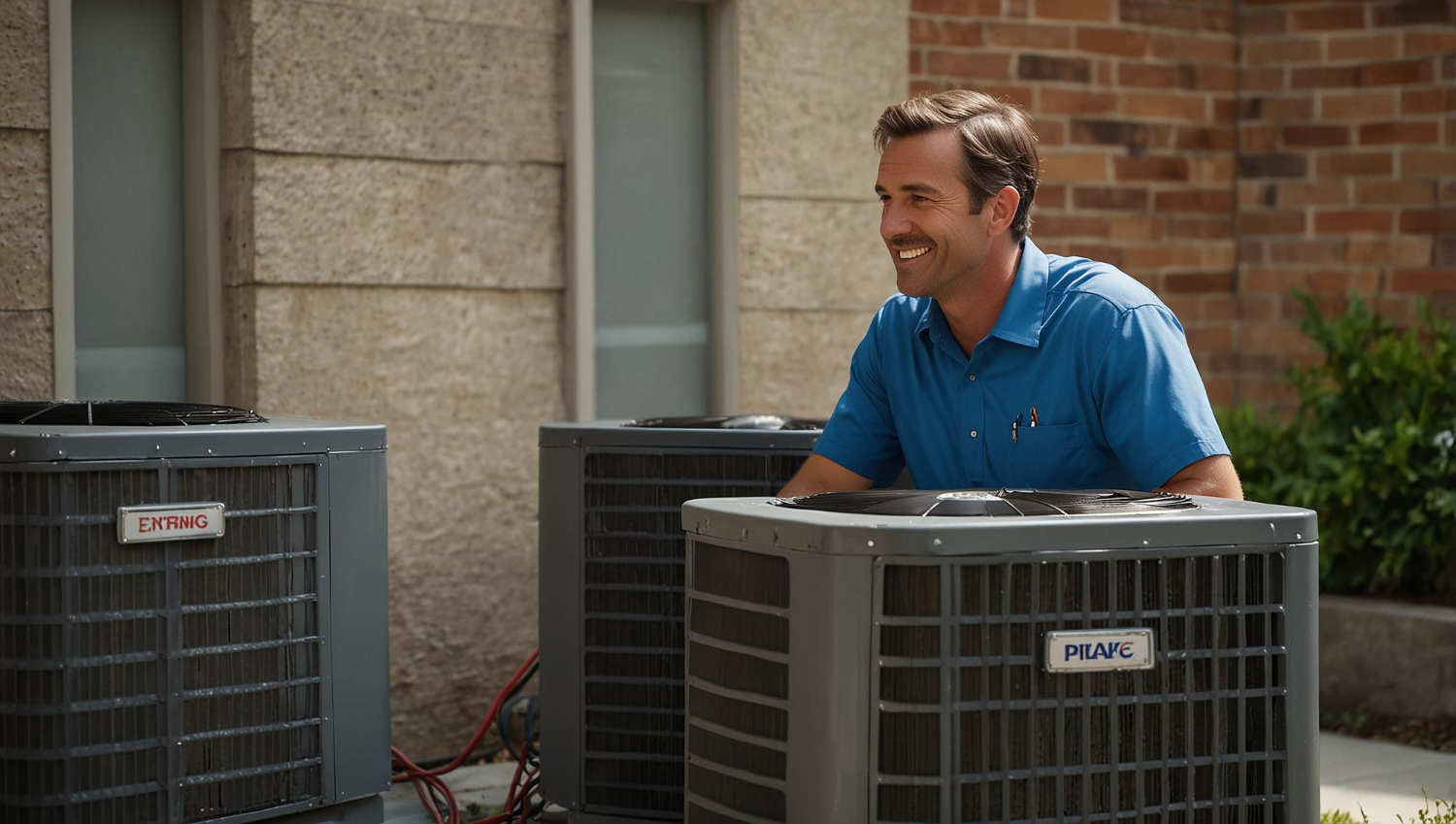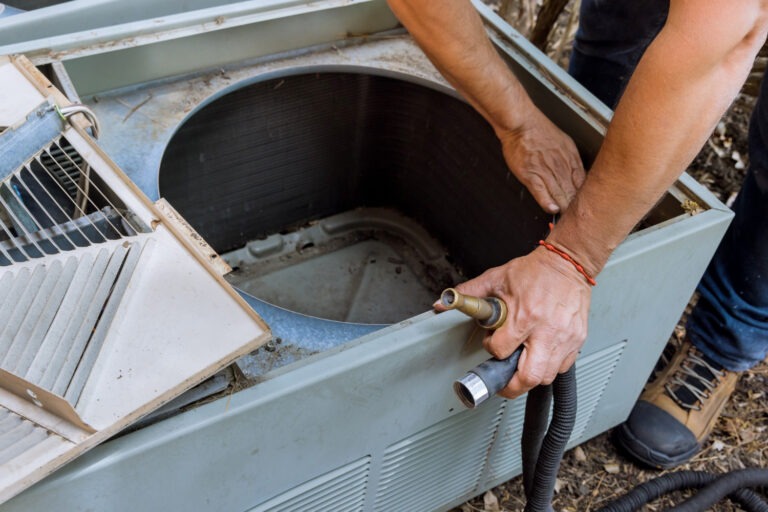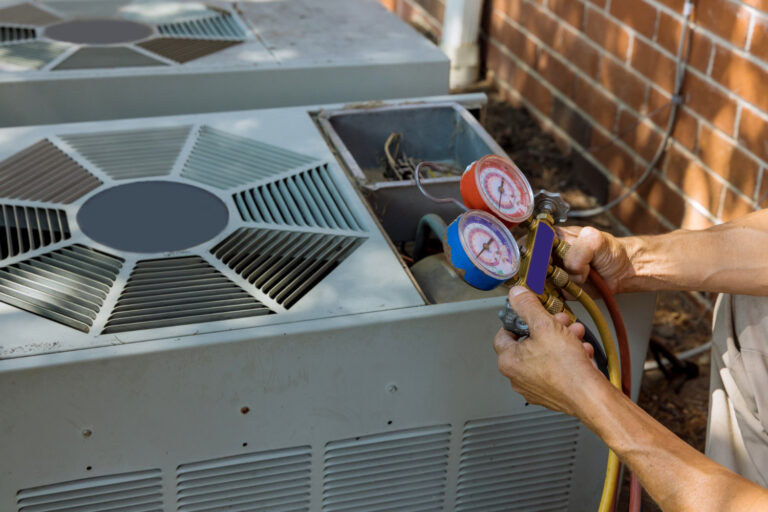Choosing the right HVAC system for your home is crucial for ensuring comfort and energy efficiency. A properly installed HVAC system will help maintain a consistent indoor climate, improve air quality, and reduce energy costs. However, making the best choice involves several important steps and considerations.
Evaluating Your Home's HVAC Needs
Assessing your home’s HVAC needs is the first crucial step in choosing the best system. Begin by examining the size and layout of your home. Larger homes will require more powerful systems to heat or cool each room efficiently. Conversely, smaller homes or specific zones may benefit from less extensive systems. Our professionals can perform detailed load calculations to help determine the optimal size and capacity of the HVAC unit suited for your home.
Consider the insulation and sealing of your home. Proper insulation and sealed ducts impact the efficiency of your HVAC system. If your home has poor insulation or leaks in the ductwork, you may need services like duct cleaning or air duct sealing before installation. These services enhance the performance of your HVAC system by ensuring that air flow is unobstructed and efficient, optimizing energy use.
Additionally, think about your local climate and specific needs. If you live in an area with extreme temperatures, a system that offers both heating and cooling options, such as a heat pump installation, may be ideal. Evaluate your current system’s performance, noting any frequent HVAC repairs or inefficiencies, to address specific needs better. By considering these factors, you can choose a system that best fits your home’s requirements.
Types of HVAC Systems to Consider
Once you have evaluated your home’s needs, the next step is to understand the types of HVAC systems available. Each system has unique features and benefits suited to different environments and requirements.
1. Central Air Conditioning Systems:
Central air systems provide efficient and uniform cooling throughout your home. Ideal for larger homes, these systems distribute cool air through a series of ducts. However, they may require proper duct cleaning and maintenance to operate efficiently.
2. Heat Pumps:
These versatile systems offer both heating and cooling solutions, making them perfect for various climates. Heat pumps are energy-efficient and can reduce the need for separate heating systems. They are suitable for homes that require year-round temperature control.
3. Ductless Mini-Split Systems:
Ductless systems are great for homes without existing ductwork. They provide flexibility by allowing zoning, which means different areas of the home can have different temperature settings. These systems are beneficial for retrofitting older homes.
4. Whole Home Dehumidifiers:
If humidity is a concern, consider integrating a whole home dehumidifier with your HVAC system. These units control humidity levels, improving comfort and indoor air quality. They work well in conjunction with other HVAC systems to provide a holistic solution.
5. Furnaces:
For homes in colder regions, furnaces provide robust heating. Modern furnaces are energy-efficient and can be paired with central air conditioning units for year-round comfort. Regular HVAC service ensures these systems operate efficiently.
By understanding the different HVAC systems available, you can choose the one that best suits your home’s size, layout, and climate requirements. Making an informed choice will ensure long-term comfort and efficiency.
Key Features to Look for in an HVAC System
When selecting an HVAC system, several key features can enhance performance and comfort. Prioritizing these elements ensures you invest in a system that meets your needs effectively.
1. Energy Efficiency:
Look for HVAC systems with high energy-efficiency ratings. Units with advanced features, such as variable speed motors and programmable thermostats, can significantly reduce energy consumption. These systems not only lower utility bills but also have a reduced environmental impact.
2. Zoning Capabilities:
Zoning allows different areas of your home to have individual temperature controls. This feature is particularly useful for homes with multiple stories or distinct areas requiring varied climate control. Zoned systems help maintain consistent comfort throughout your home.
3. Advanced Filtration Systems:
Modern HVAC units come equipped with advanced filtration to improve indoor air quality. Enhanced filters can trap allergens, dust, and other pollutants, making the air cleaner and healthier to breathe. Consider systems with high-efficiency particulate air (HEPA) filters if air quality is a priority.
4. Smart Technology Integration:
Many new HVAC systems offer smart technology integration, which allows you to control your system remotely using a smartphone or tablet. This feature enables you to adjust settings, monitor energy use, and schedule maintenance with ease.
5. Quiet Operation:
Noise levels can impact your comfort, especially in residential settings. Look for systems designed to operate quietly, minimizing disruptions in your daily activities.
By choosing an HVAC system with these key features, you ensure long-term efficiency, comfort, and convenience in your home.
Preparing for HVAC Installation Day
Proper preparation on installation day ensures a smooth and efficient process, allowing our technicians to work effectively and minimizing disruptions to your routine.
Clear the Installation Area:
Make sure the area around the installation site is clear of furniture, decorations, and any obstructions. This includes both indoor and outdoor units’ spaces. A clear workspace allows our professionals to move freely and safely, ensuring a more efficient installation process.
Provide Easy Access:
Ensure that our technicians have easy access to your home and the areas where the HVAC system will be installed. This may involve unlocking gates, removing pets from the area, and making sure pathways are clear. Accessibility speeds up the installation process and helps prevent any delays.
Protect Your Home:
While our technicians take great care to protect your home, you can take additional steps to safeguard your property. Cover nearby furniture and floors with drop cloths or plastic sheets to protect them from dust and debris. Our professionals will also take measures to minimize mess and clean up afterward.
Review and Communicate Specifications:
Before installation day, review the specifics of the HVAC system and installation plan with our team. Clear communication ensures that everyone is on the same page and that the installation aligns with your expectations. Address any concerns or special requirements ahead of time to avoid misunderstandings.
By following these preparation steps, you can help ensure a smooth and efficient HVAC installation, allowing you to enjoy the benefits of your new system as soon as possible.
Conclusion
Choosing the best HVAC system for your home involves careful evaluation of your needs, understanding the types of systems available, identifying key features, and preparing for a seamless installation. Each of these steps ensures that your new HVAC system will provide optimal comfort, efficiency, and air quality for years to come.
A well-chosen and properly installed HVAC system can transform the comfort level in your home. From better air quality to energy savings, the benefits are significant. Taking the time to make informed decisions and prepare for installation can save you time, money, and hassle in the long run.
For professional advice and top-notch HVAC installation in Hialeah, contact Air New Solutions. Our experts are ready to help you choose and install the perfect HVAC system tailored to your home’s specific needs. Don’t wait—reach out to us today to get started.








